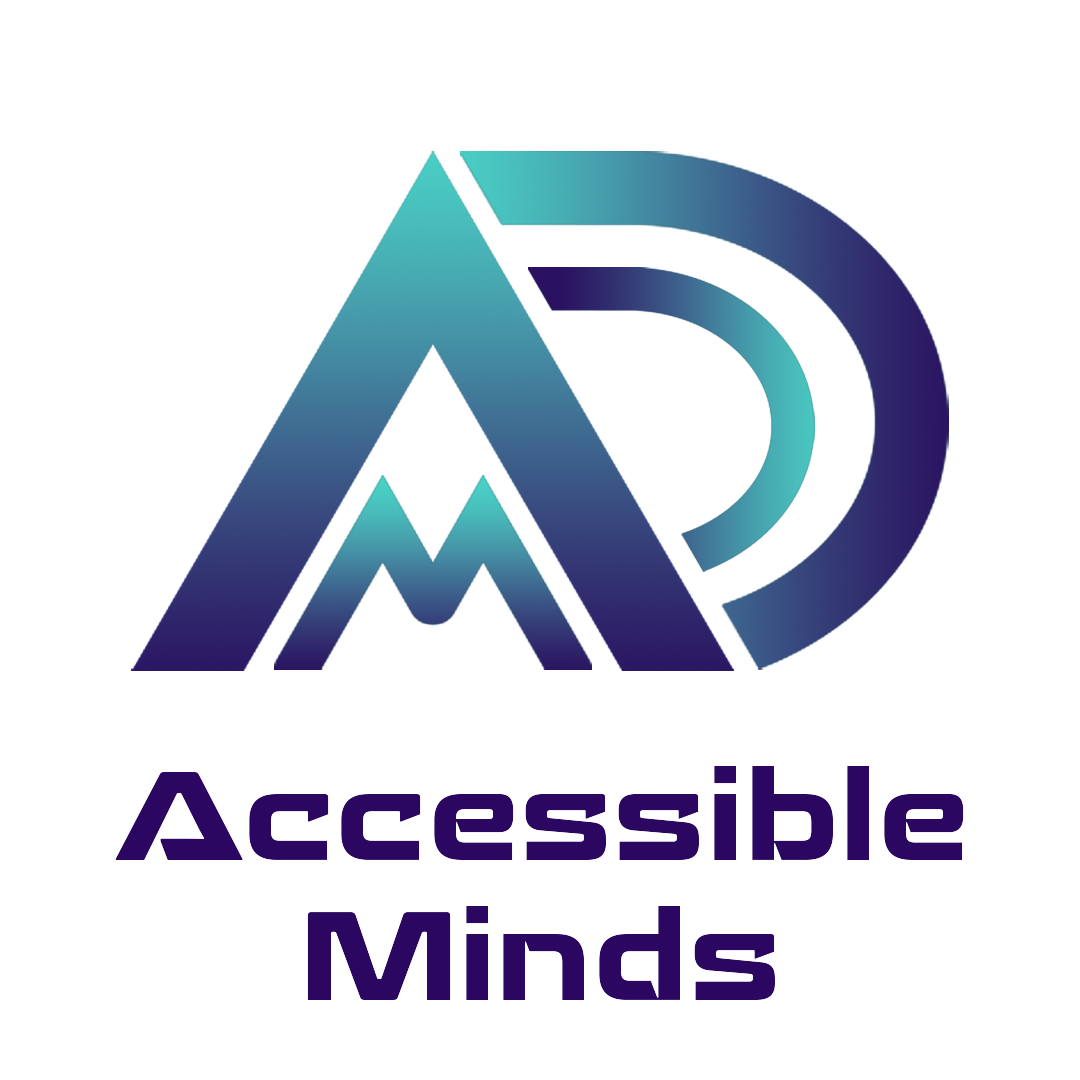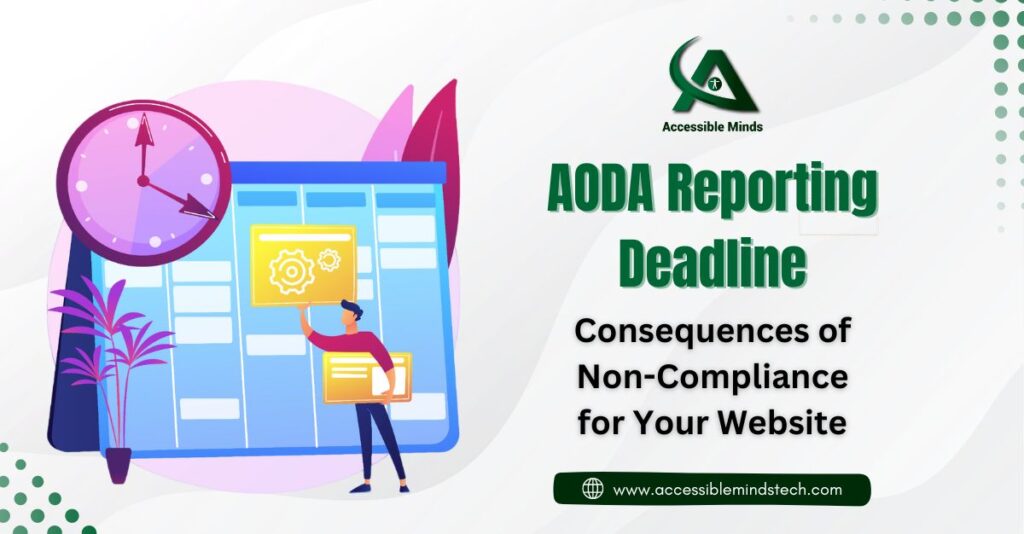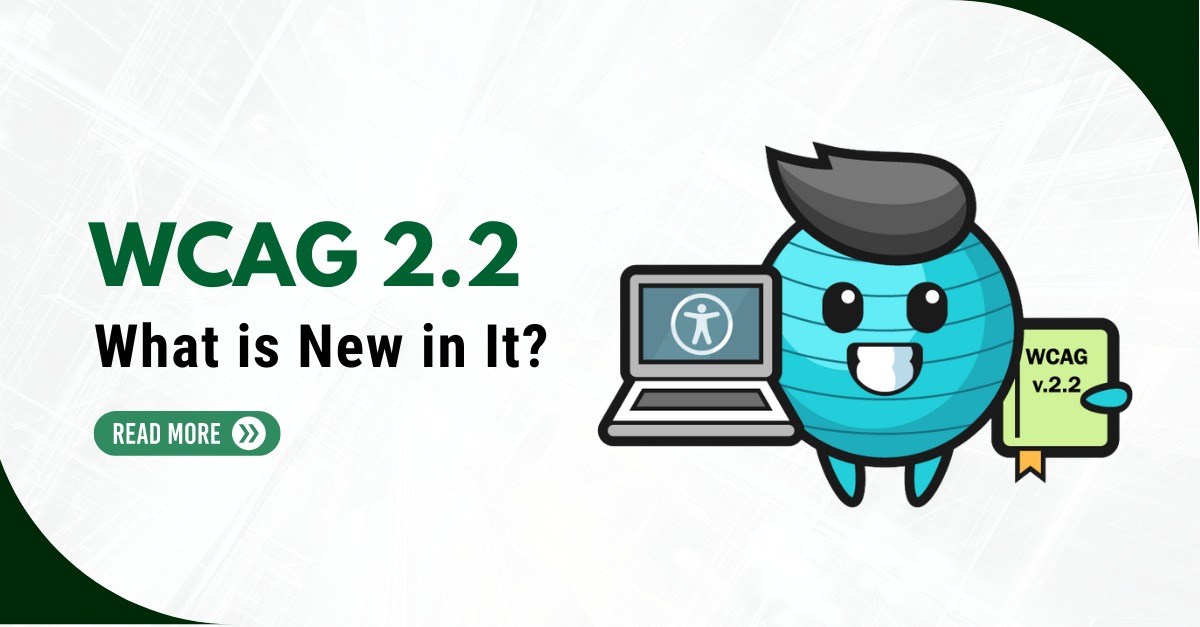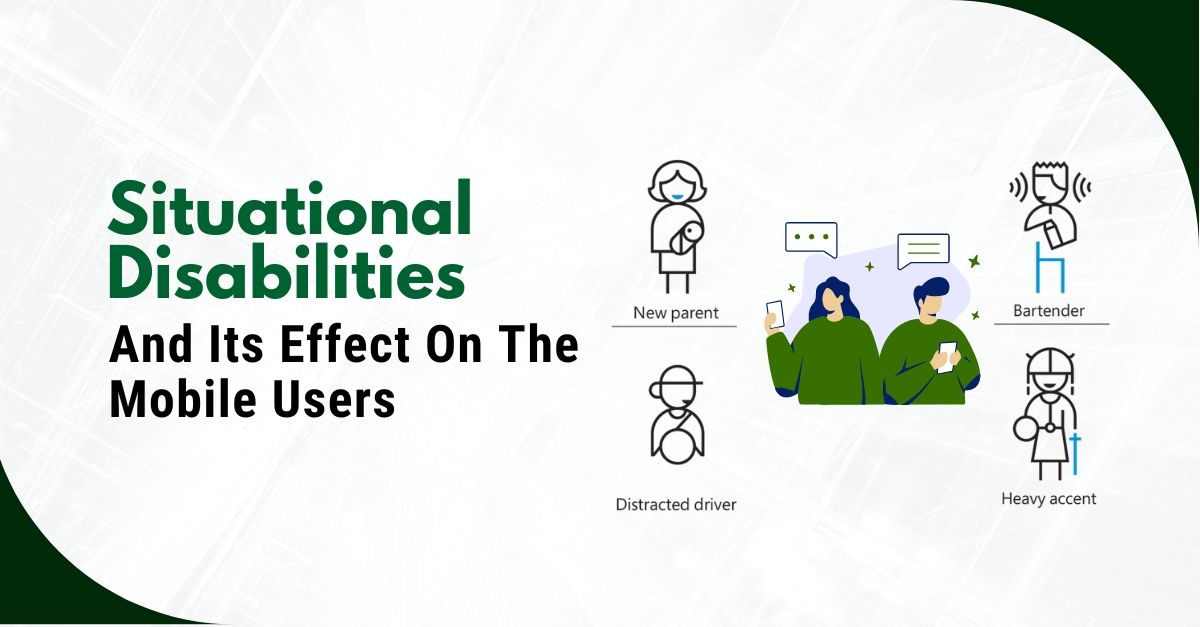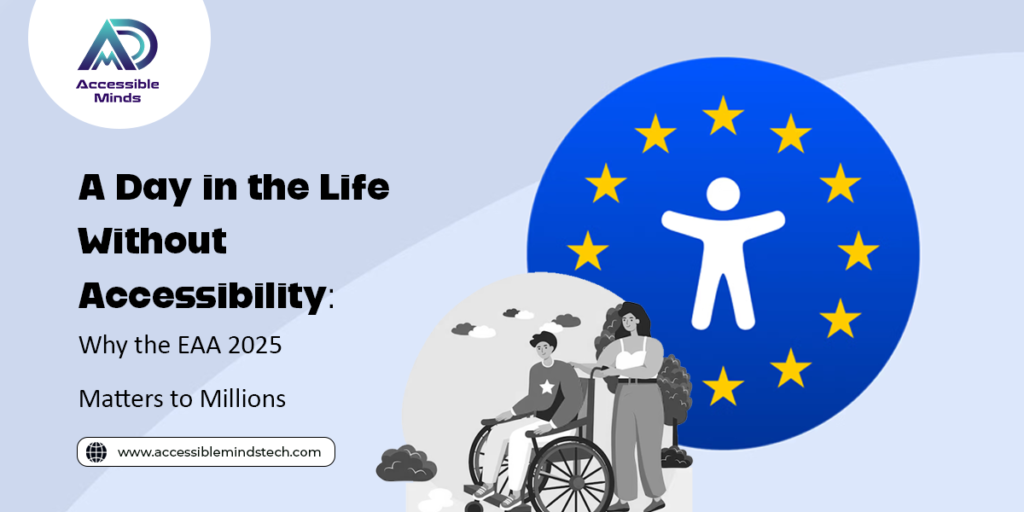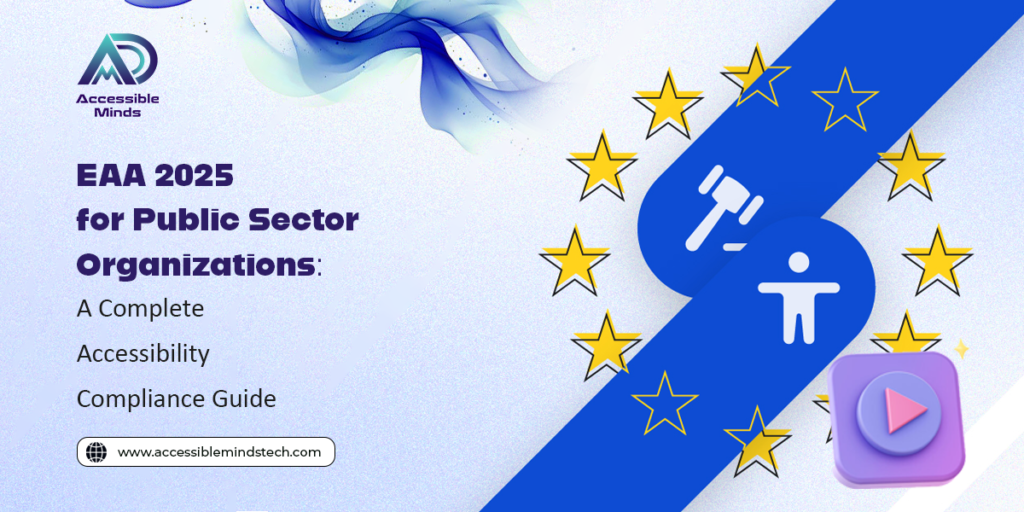Introduction
As the December 31, 2023, deadline for Accessibility for Ontarians with Disabilities Act (AODA) compliance reporting has passed, organizations are left to grapple with the consequences of non-compliance. In this blog post, we’ll delve into the implications of missing the AODA deadline, the steps to take if your organization is non-compliant, and the ongoing commitment required for digital accessibility. We’ll also emphasize the importance of partnering with digital accessibility testing services, focusing on Accessible Minds, a key player in this field.
The Deadline Dilemma
The Accessibility for Ontarians with Disabilities Act (AODA) sets a clear compliance reporting deadline, and unfortunately, no extensions were granted for the December 31 filing date. For organizations that missed this deadline, the priority now is to file the required report as soon as possible, even if full compliance has not been achieved. The Accessibility for Ontarians with Disabilities Division (AODD) urges organizations to download and complete their accessibility compliance report on Ontario.ca. An essential point to note is that organizations needing additional time to work towards compliance can apply for an extension only after filing the initial report.
Non-Compliance: What it Means?
If your organization is non-compliant with AODA standards, it is crucial to indicate this in your compliance report. Non-compliance, in the context of this article, refers to a failure to meet the WCAG 2.0 AA conformance requirement under Part II of the AODA, specifically the Information and Communications Standards. The act of indicating non-compliance itself does not trigger immediate enforcement actions from AODD. However, organizations must develop a comprehensive compliance roadmap detailing how they plan to address all non-compliance issues.
The government will follow up with these organizations to provide tools, resources, and support. A negotiated date will be determined to ensure that all issues of non-compliance are adequately addressed. It is crucial for organizations to understand that enforcement measures, including monetary fines, are reserved for cases where non-compliance persists. To navigate the complexities of creating a compliance plan, organizations are advised to align with third-party accessibility experts, such as Accessible Minds, who can provide valuable assistance.
Collaborating with Third-Party Accessibility Experts
Aligning with a third-party accessibility organization like Accessible Minds can be instrumental in creating a robust compliance plan. Such a plan should include a clearly defined roadmap with timelines and deliverables. Third-party experts can bring a wealth of experience and knowledge, ensuring that organizations not only address existing non-compliance issues but also proactively work towards preventing future accessibility challenges.
Accessibility is an Ongoing Journey
For organizations that have successfully met the AODA deadline and achieved compliance, it is essential to recognize that accessibility is an ongoing journey. The digital landscape evolves, and so do the standards outlined in the Web Content Accessibility Guidelines (WCAG). Any new digital content created or modified must align with these evolving standards.
To ensure ongoing accessibility, organizations are encouraged to establish monitoring and tracking programs that demonstrate a commitment to continuously reviewing and updating digital content. This proactive approach helps in identifying and rectifying new errors that may emerge over time. Partnering with a third-party accessibility organization, such as Accessible Minds, ensures that organizations stay abreast of both WCAG technical standards and global regulatory requirements.
Conclusion
The AODA reporting deadline has passed, but the journey toward digital accessibility continues. For organizations that missed the deadline or are grappling with non-compliance issues, swift action is required. Filing the required compliance report, developing a comprehensive compliance roadmap, and seeking support from third-party accessibility experts are crucial steps in this process. The collaboration with organizations like Accessible Minds can pave the way for a sustainable and inclusive digital future, demonstrating a commitment to accessibility beyond mere compliance. Remember, accessibility is not a one-time task but an ongoing commitment to inclusivity and equal access for all.
